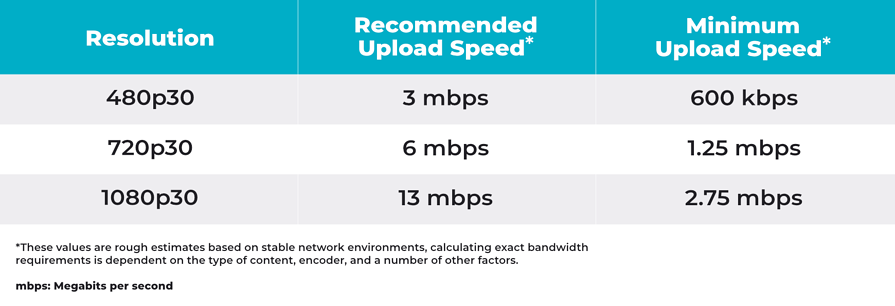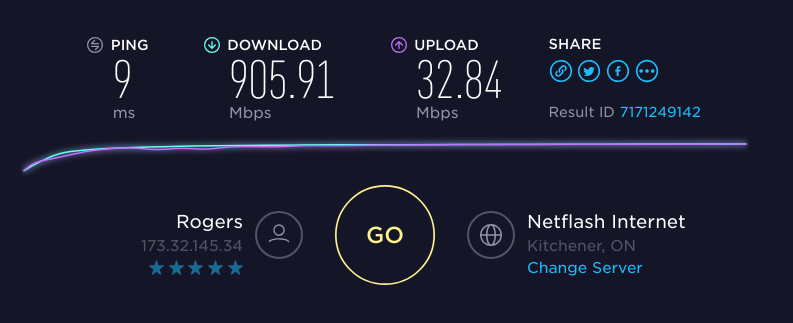Checking out the Partnership Between Megabits Per Second and Download Speeds
Checking out the Partnership Between Megabits Per Second and Download Speeds
Blog Article
How Megabits Per Second Impact Your Online Activities
The concept of megabits per second (Mbps) plays a critical duty in forming our on-line experiences. As electronic tasks proliferate, comprehending the ramifications of Mbps on pc gaming, video clip, and streaming conferencing ends up being progressively crucial. Higher Mbps can enhance performance and reduce disruptions, while poor rates might promote irritation and ineffectiveness. Examining your home's particular needs in regard to these rates is crucial, specifically as several devices vie for transmission capacity. Yet, the subtleties of exactly how Mbps affects numerous online tasks require further expedition, especially as our dependence on electronic connectivity remains to advance.
Recognizing Megabits Per Second
When taking into consideration internet rate, it's important to recognize the concept of megabits per second (Mbps), which serves as a common measurement for data transfer prices. This metric measures just how much data can be sent over an internet link in one second, providing a clear understanding of efficiency capacities - Megabits Per Second. For context, one megabit is equal to one million little bits, and Mbps is generally utilized to share bandwidth for different on-line activities
A greater Mbps shows a faster internet link, enabling individuals to execute tasks such as downloading files, searching internet sites, and engaging in on the internet video gaming extra efficiently. For instance, normal surfing calls for around 1-5 Mbps, while streaming high-definition video may require 5-25 Mbps. Comprehending these needs is essential for establishing the appropriate internet speed needed for certain activities.
Additionally, the number of gadgets attached to a network can influence overall performance. Several customers streaming, gaming, or downloading and install at the same time can strain readily available data transfer, leading to slower rates - Megabits Per Second. Assessing personal online behaviors and demands is essential in selecting a web plan that lines up with one's needs, guaranteeing a seamless digital experience
Streaming and Buffering Issues
Streaming high-def web content has ended up being a staple of modern online entertainment, yet it is frequently accompanied by discouraging buffering concerns. These disruptions can substantially detract from the seeing experience, leading to frustration and possible loss of audience interaction. Buffering occurs when the information sent from the streaming service is not received promptly enough to maintain a smooth playback, usually because of insufficient net speed measured in megabits per second (Mbps)

In addition, real-time streaming can be impacted by network blockage, which happens when multiple devices share the very same data transfer. As a result, enhancing connection rate and making certain appropriate Mbps is necessary for a seamless streaming experience. As streaming solutions remain to develop, understanding the influence of Mbps on buffering problems continues to be important for consumers looking for undisturbed home entertainment.
Online Pc Gaming Performance
The impact of web rate on on-line activities prolongs beyond streaming, considerably influencing on-line gaming efficiency. In competitive pc gaming, low latency and high transmission capacity are important for a smooth experience. A quick link reduces lag, permitting players to respond swiftly to in-game events, which can be the distinction between success and loss.
Data transfer, gauged in megabits per second (Mbps), plays a crucial role in supporting numerous devices and video gaming systems concurrently. Not enough bandwidth can weblink cause went down connections or minimized video game quality, negatively impacting gameplay. As an example, on the internet multiplayer video games call for substantial data transfer, especially throughout peak pc gaming hours when numerous players are online.
Hectic first-person shooters demand greater rates to keep responsiveness, while turn-based strategy video games might work reasonably well on lower rates. As on the internet gaming proceeds to advance, with boosting graphical integrity and even more complicated multiplayer atmospheres, the demand for greater Mbps will only magnify.
Video Clip Conferencing High Quality
In today's digital landscape, video clip conferencing high quality is heavily affected by web rate, specifically in terms of transmission capacity and latency. High-grade video calls require adequate bandwidth to send audio and video clip data seamlessly. Commonly, a minimum of 1.5 Mbps upload and download speeds is advised for conventional definition video clip, while high-definition video clip conferencing generally requires at the very least 3 Mbps.
Latency, or the delay in between sending and receiving information, additionally plays a crucial function in the customer experience. Higher latency can lead to echo, lag, and disjointed communications, which can prevent collaboration and interaction throughout conferences.
In addition, several individuals in a video meeting can strain available data transfer, demanding also higher rates. Network blockage, frequently brought on by synchronised tasks like streaming or downloading, can better weaken video top quality. Thus, for companies depending on video conferencing for remote collaboration, understanding the partnership in between megabits per second and general interaction quality is crucial for keeping efficiency and improving digital communications.
Picking the Right Net Plan
Choosing a proper web strategy is vital for making certain optimum efficiency in numerous on the internet activities, particularly in settings that demand high transmission capacity, such as video clip conferencing and online pc gaming. Megabits Per Second. When taking into consideration a web plan, it is vital to assess both the speed and information allocation to match your particular usage needs
For houses with several individuals taking part in synchronised tasks, a plan offering higher megabits per second (Mbps) is advised. Normally, a minimum of 25 Mbps appropriates for basic streaming and browsing, Web Site while strategies surpassing 100 Mbps are preferable for even more intensive jobs. Furthermore, consider the nature of your online tasks; video conferencing requires at the very least 1.5 Mbps publish speed, while on-line gaming might need a reduced latency however consistent link.
It is likewise crucial to evaluate your information cap. Limitless information plans can prevent strangling and interruptions, specifically if heavy use is anticipated. Research study solution companies in your location, as availability and prices can differ. By thoughtfully picking an internet plan customized to your requirements, you can improve your online experience, making sure smooth, uninterrupted access to your recommended activities.
Final Thought
In conclusion, the importance of megabits per second (Mbps) in forming on the internet tasks can not be overemphasized. Greater Mbps promotes smooth streaming, lowers buffering, boosts pc gaming experiences, and makes certain high-quality video conferencing. Conversely, inadequate bandwidth can lead to frustrating interruptions and diminished efficiency throughout different tasks. For that reason, a complete understanding of private or home Mbps requirements is important for selecting an appropriate net strategy that sufficiently supports diverse online tasks and individual demands.

Typically, a minimum of 25 Mbps is ideal for typical streaming and surfing, while plans exceeding 100 Mbps are preferable for even more extensive tasks. visit site Additionally, consider the nature of your online tasks; video conferencing requires at the very least 1.5 Mbps publish speed, while online pc gaming might need a reduced latency however consistent link.
Report this page